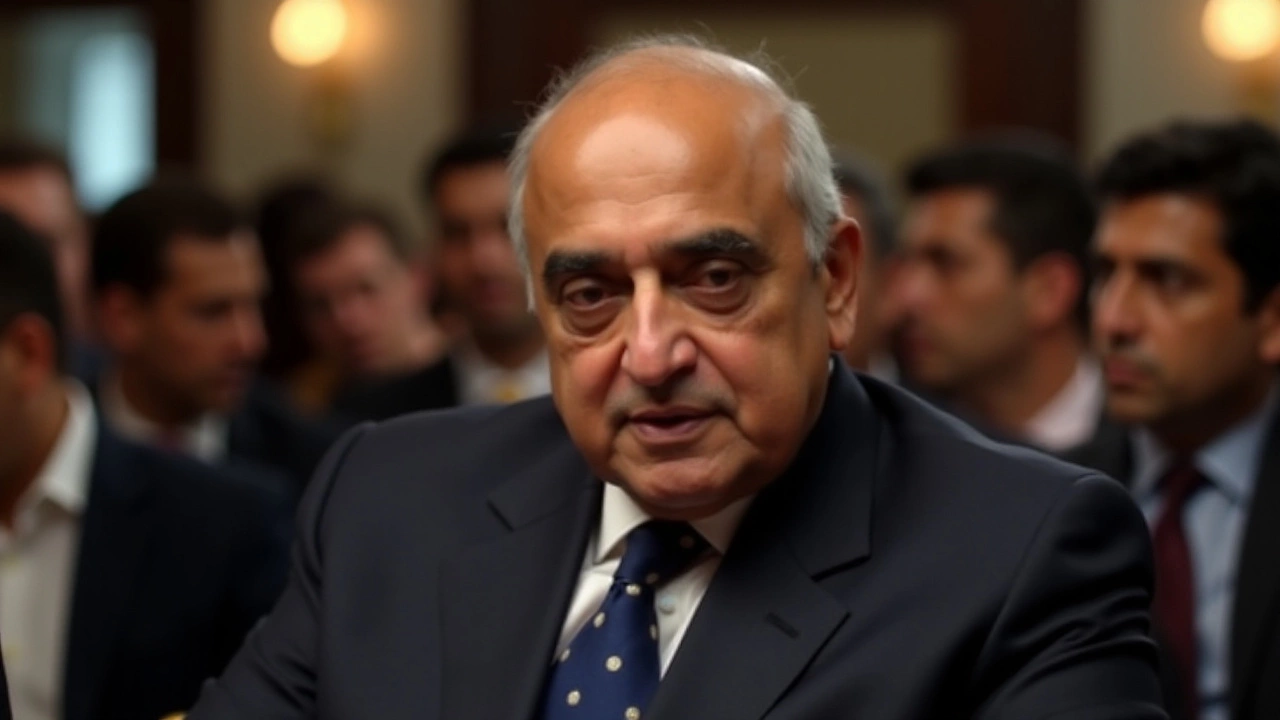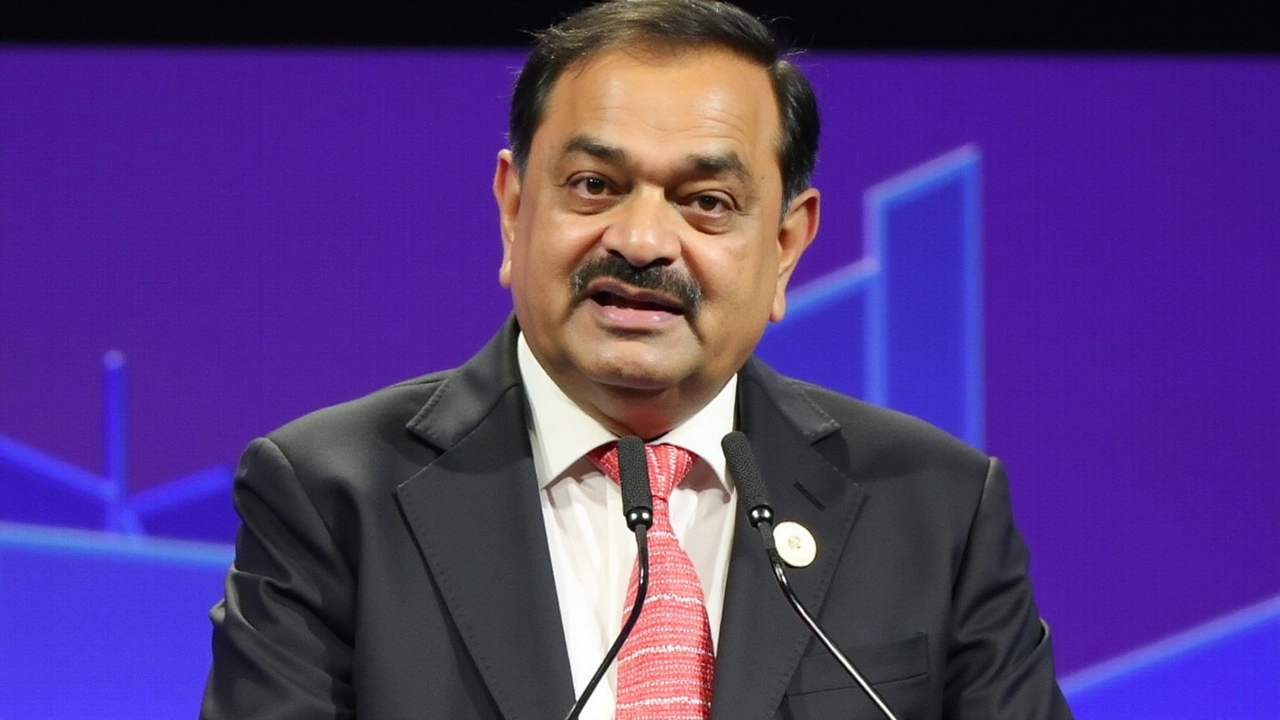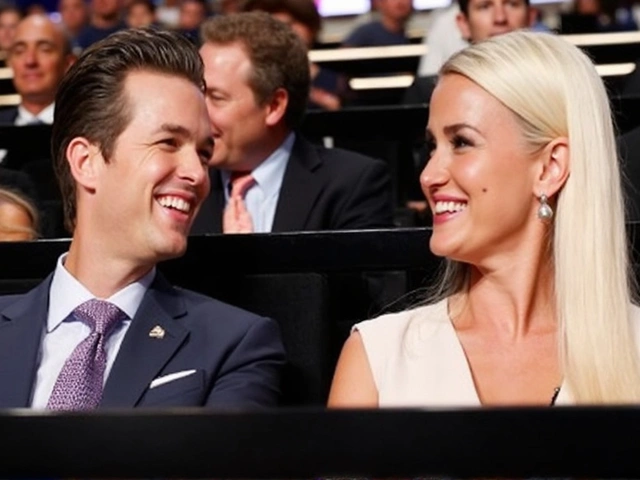Introduction: The Bribery Allegations
In a sprawling tale of corporate intrigue and alleged misconduct, Gautam Adani, the prominent billionaire at the helm of the Adani Group, finds himself under a glaring spotlight. U.S. authorities have charged Adani, alongside seven top-tier executives, with involvement in a staggering $250 million bribery scheme. It's a case that not only threatens Adani's empire but also raises searching questions about the extent of corporate governance practices in such colossal conglomerates. The scheme reportedly spanned continents and targeted the upper echelons of the Indian government, promising or outright delivering monetary incentives to secure enviable energy contracts potentially worth billions.
The Mechanics of the Scheme
Investigations have painted a vivid picture of how the alleged corruption unfolded. According to the indictment, Adani and his associates distinctly misrepresented business ethics to US investors. Allegedly, they painted a picture of unwavering adherence to stringent anti-bribery laws, while knowingly falsifying records. This facade enabled Adani Green Energy Ltd. to ink agreements supplying 12 gigawatts of solar power to the Indian state, a venture requiring deft navigation of governmental corridors. These transactions, however, risk being tainted by accusations of bribery aimed at swaying officials towards Adani's interests. The indictment claims these acts undermined the integrity of their publicly professed ethical standards.
Securing Contracts: A Complex Web
The contracting process, as presented, was anything but straightforward. It is alleged that the processes involved are rife with bureaucratic hurdles, which were then deftly maneuvered by Adani and his alleged co-conspirators through illicit means. These complexities were purportedly compounded by senior executives who played pivotal roles in concealing improprieties from investor communities. The intricate dance between corporate opportunity and ethical compliance was allegedly overshadowed by tactics circumventing transparency and rule of law, according to US authorities.

Amplified Scrutiny from U.S. Agencies
The U.S. Securities and Exchange Commission (SEC), in tandem with other enforcement bodies, is doubling down on civil charges relating to the authenticity of representations made to investors. They're searching for alleged violations of the Foreign Corrupt Practices Act (FCPA), pinning Adani and his team with counts of conspiracy. The SEC claims that a formidable $175 million was funneled from US investors on questionable pretenses, eroding trust and potentially triggering international scrutiny over investor safety and corporate accountability.
Charges and Defendants: More Than Just Names
Alongside Gautam Adani, various other individuals stand accused — figures like Sagar Adani, his nephew, and Cyril Cabanes, previously a director at Azure Power Global Ltd. Others embroiled include names such as Ranjit Gupta, Rupesh Agarwal, Saurabh Agarwal, and Deepak Malhotra. Each individual's role in this purported conspiracy paints a sprawling tableau of corporate complicity, suggesting deeper organizational flaws and the challenging reality of ethical sustainability in dynamic markets.
Market Reactions: Financial Impacts
The ripple effects of these indictments have been stark. Adani Group's financial units bore the brunt, experiencing noticeable declines in both share value and bond strength. International investor confidence has shown signs of waning, showcasing the financial precariousness prompted by allegations of this magnitude. Adani’s dollar bonds also faced significant pressure, revealing the potential fiscal risks for conglomerates embroiled in legal and ethical controversies. This jolt serves as a reminder of the brittle rapport between corporate integrity and investor support.

Reflections on Corporate Ethics
This case underscores the increasing intolerance for corporate missteps in the global arena. It highlights how contemporary businesses must weave ethical considerations into the very fabric of operational strategies, ensuring governance mechanisms robustly withstand auditing by authorities like the SEC. The unfolding legal proceedings accentuate the stakes involved, demanding organizations reassess their approach to transparency, regulatory compliance, and ethical fortitude.
Conclusion: Broader Implications and Next Steps
As this intricate legal process with Gautam Adani and his team progresses, its implications may ripple across boardrooms stretching far beyond India's borders. It serves as an exemplar for why entrenched corporate giants must routinely scrutinize their core ethics and compliance practices. The call for greater accountability, more nuanced disclosure, and authentic investor relations practices might redefine how conglomerates of Adani's stature operate moving forward, shaping a new paradigm for corporate responsibility.



